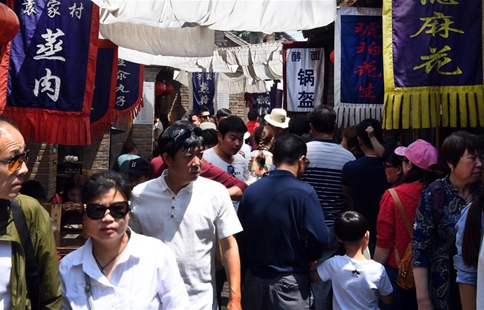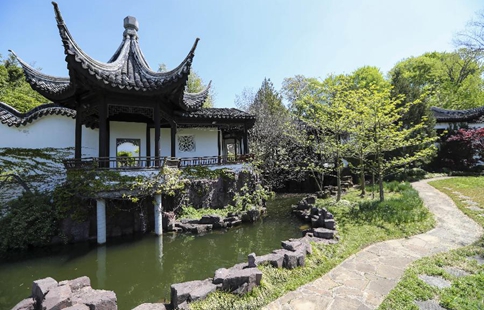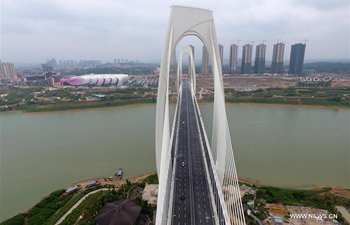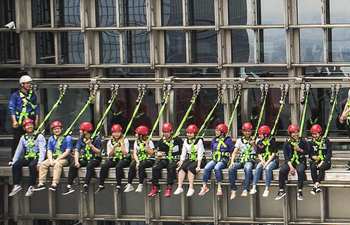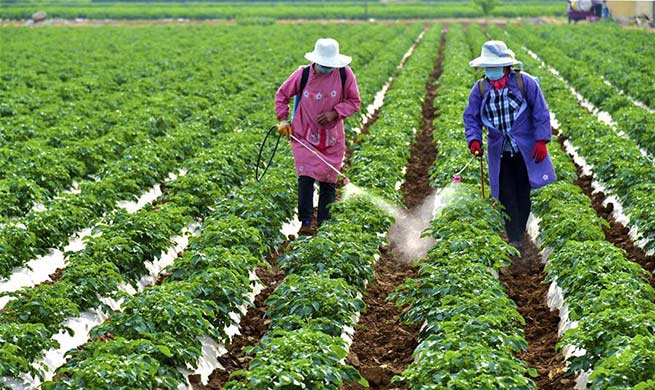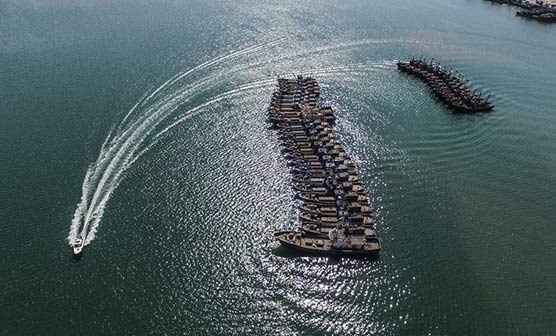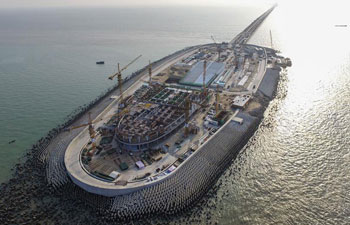KYIRONG, Tibet, May 1 (Xinhua) -- Sajan Bolon prefers talking in Mandarin with the Chinese, even when they start a conversation in English.
He pulled over at the roadside Monday afternoon to wait for entry into China at the Gyirong land port in Xigaze of Tibet Autonomous Region, and joined a dozen Nepalese truck drivers for a chat.
"I carry apples for sale in China," Bolon said in Mandarin. A newbie in the trade, he only got his license two years ago.
His friend Jack Shrestha, however, was more experienced. "I drive into China almost every day, carrying apples and clothes," he said.
When a massive earthquake hit Nepal two years ago, the port of Gyirong on the China-Nepal border served as the shelter for Nepalese who had to flee from their homes.
Last year, Gyirong resumed two-way traffic as the only land port for bilateral trade.
"Driving on the border is an adventurous journey, with falling rocks from the cliffs on either side of the road. But it's exciting, too," Shrestha said.
Not everyone enjoys such adventures.
Scared of the falling rocks and other potential risks on the road, Resham Bahadurlo, 34, gave up driving at the end of 2015 and secured a cleaner's job at a grocery store in Kyirong township, 24 km from the land port.
"In Nepal, driving is a dangerous and tiring job, and does not necessarily pay well," Bahadurlo said. "I have a big family to feed, so I need to stay safe and bring home money."
With his cleaning job, he said he could mail home 2,000 yuan (290 U.S. dollars) a month. "I spend very little here, because meals and lodging are free."
When the store was short of workers last month, he recommended his nephew Binod Lo, 18, to join him. "It is a good job for young people to start with," he said.
Bahadurlo has never felt lonely because he has many Nepalese friends in Kyirong.
His close friends Deny Tamang and Mingma Tsomo, a couple, run Norling Restaurant that serves the best curried rice in town.
"Norling means good fortune in Nepali," Tamang said. True to its name, the restaurant, which opened in 2012, was a big success.
"Diners keep flooding in at any time of the day. In the busiest hours, the guests have to wait for an hour for a table," he said.
The couple often receive guests from faraway cities including Beijing and Shanghai.
On the sidelines of the restaurant, the couple also run a shop selling Nepalese drinks, garments and artwork. "The restaurant and shop bring in a daily profit of 2,000 yuan," Tsomo said.
The couple were almost penniless when they first came to Kyirong in 2012. "Fortunately, we were granted 22,000 yuan by the Chinese government as a startup fund," Tsomo says.
The same amount was granted to several other Nepalese to encourage them to start businesses in Kyirong, according to Pempa, deputy chief of the development and reform commission of Kyirong County.
"Many Nepalese followed them into Kyirong," Pempa said. "Today, they have opened more than 10 businesses in town."
But this is bad news for Tamang and his wife, who have felt growing pressure from the competition of their countrymen.
"We had planned to run our business in China for at least 10 years. But as competition mounts, we might have go come back to Nepal sooner than expected."




